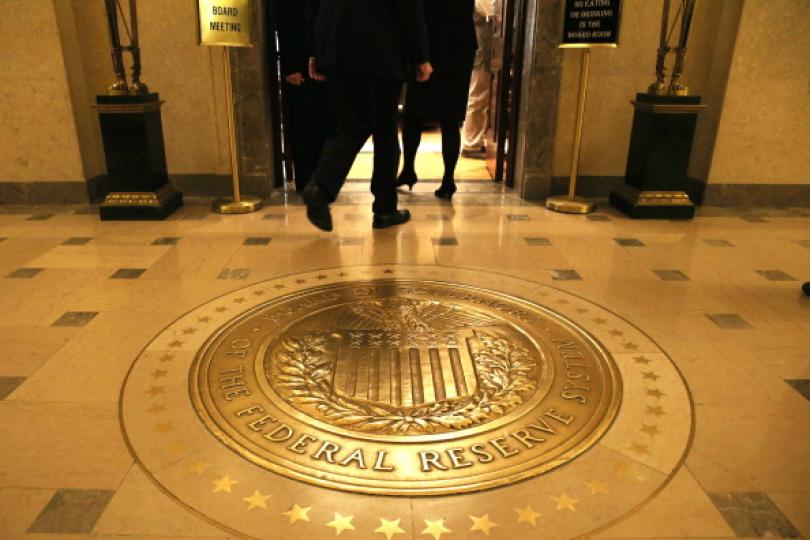Treasury Yields Rebound After Fed Signals Higher Rates Ahead

Yields on shorter-term U.S. government bonds reversed earlier declines Wednesday after the Federal Reserve held interest rates steady but signaled that it still could raise them more than investors had been expecting this year. The yield on the benchmark two-year Treasury note, which is particularly sensitive to the near-term outlook for interest rates, settled at 4.707%, according to Tradeweb, compared with 4.694% Tuesday. The yield on the benchmark 10-year Treasury note settled at 3.796%, up from 3.773% just before the Fed released its latest policy statement and economic projections, though down from 3.838% a day earlier.
The Fed’s decision to leave its benchmark federal-funds rate at a range of 5% to 5.25% had been clearly telegraphed by officials and came as no surprise to investors. Their focus was instead on officials’ interest-rate forecast, which did come above expectations. Out of forecasts from 18 Fed officials, the median estimate was that rates will need to rise to between 5.5% and 5.75% this year, suggesting two more 0.25 percentage point rate increases. Before the meeting, interest-rate futures had indicated that investors thought the likeliest scenario was that the central bank would raise rates just one more time, at its next meeting in late July.
Investors expressed some skepticism that the Fed would follow through on its forecasts. After rising sharply initially, yields quickly started to fall again and then held relatively steady as Fed Chair Jerome Powell delivered his postmeeting press conference. Investors have scaled back bets that the Federal Reserve will cut interest rates this year due to a recession. Photo: Al Drago/Bloomberg News
Forecasting two more rate increases at this stage “is ambitious,” said Will Compernolle, macro strategist at FHN Financial. “So far the market’s reaction has not really been buying it.” In his remarks, Mr. Powell said that officials had not committed to any future policy such as raising rates in July, though he did imply that raising rates next month was an active possibility.
Treasury yields had declined earlier in Wednesday’s session after a new report showed that supplier prices fell 0.3% in May from the previous month after rising 0.2% in April. The data gave fresh support to investors who believe that easing inflation pressures will allow the Fed to stop raising rates for the rest of the year and perhaps even cut them if economic growth shows signs of faltering.
Inflation data overall has been mixed in recent months. Tuesday’s consumer price-index report showed that prices excluding food and energy categories rose 0.4% in May from the previous month, indicating that so-called core inflation remains well above the Fed’s 2% annual target. Stripping out even more items that can be volatile, there were signs of some cooling in key services categories. But that was also true the previous month, when encouraging CPI data was later undercut by the Fed’s preferred inflation gauge, the personal-consumption expenditures price index, which failed to show similar progress.
Despite the occasional good news on inflation, Treasury yields have climbed in recent months, reflecting in large part easing anxieties that rising interest rates will drive the economy into a recession this year. Surprising some, there have been few signs recently of any significant slowdown in consumer or businesses spending. Fears of a serious credit crunch have also abated as regional lenders show signs of stability following the high-profile failures of Silicon Valley Bank and Signature Bank in early March.
Yields on Treasurys largely reflect investors’ expectations for the level of short-term interest rates set by the Fed over the life of a bond. As it stands, investors aren’t expecting that rates will rise quite as high as they did right before the March bank failures. But they have also significantly scaled back bets that the Fed will cut interest rates this year due to a recession, largely embracing the mantra that rates will stay “higher for longer.”
